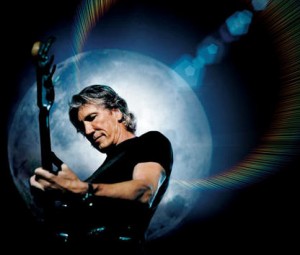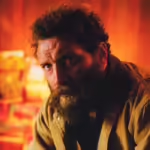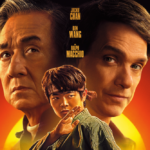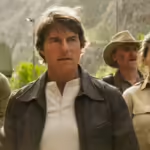When Roger Waters left Pink Floyd, it led to one of the bitterest estrangements in rock history. Post Syd Barrett, Waters largely steered the band creatively. On leaving the group, he assumed Pink Floyd was ’over’. David Gilmour had other ideas. It was a surprise to many when an olive branch of sorts was offered and Waters helped the band promote a live version on their masterwork of alienation, The Wall. Sean Sennett received a call out of the blue from Sony Music asking if he`d be interested in chatting to Waters about the release. A few hours later Roger was on the line.“If you find yourself at a Pink Floyd show,” Roger Waters once said, “you`ll see my wall, my flying pig and their dry ice.”
Waters was once at the controls of the Pink Floyd that became a global commodity. It was Waters` vision-after the loss of Syd Barrett in the late sixties-that inspired and drove albums as famous as Wish You Were Here, Dark Side Of The Moon and their double-album opus, The Wall. After The Final Cut in 1983, Waters left the group. With his departure, he naturally assumed that Pink Floyd would be no more. They would simply break up, he thought.”Well, it kind of did,” he deadpans from Paris, “but a few of the bits went on calling itself Pink Floyd. But that`s old history. There`s not a lot to be said about it really.”What has drawn Waters back into the Pink Floyd fold is a series of interviews to promote the new live album, Is There Anybody Out There? a live recording of The Wall, released to coincide with the original album`s twentieth anniversary. For Water, it`s a purely retrospective mission-he hardly feels as if he`s back in the band again.”It doesn`t feel like that to me,” he says. “I feel like I`m talking about a piece of work I did 20 years ago. This is no sense includes me in what Dave (Gilmour) and Nick (Mason) are doing now, I would hope”.
Waters has been vilified by the other member of Pink Floyd as a control freak and many feel that it was Waters-as-taskmaster that nearly broke the band during the recording of the original The Wall album. He sacked keyboard whiz Rick Wright and rumour had it drummer Mason was to be next. His relationship with guitarist Gilmour similarly was tenuous.Despite the passing of time and the still lingering acrimony with his former band mates, Waters doesn`t believe he`s that much different from the young man who dreamed up on of rock music`s finest concepts. “Twenty years of psychotherapy later,” he says, “I think I understand a bit more about who I am, and I`m more content to inhabit this shell that I was then. But otherwise, I haven`t changed. I`m quite clear about who made the record. The work remains in one`s heart and one`s memory”.
Since leaving Pink Floyd, Waters has toured America and Europe, playing to enthusiastic crowds. In 1980, he was lured into performing The Wall in its entirety. Ten years later, Waters performed the album in Berlin. Now, in 2000, promoters are again asking the question.
“I was actually asked to do it over summer as a kind of millennium thing,” he explains. “The suggestion was that we could do it somewhere in North America and there`d be a big pilgrimage, an audience of a million people and it`d be free. I was vaguely attracted to the idea when they started talking about it being free. But then I thought how could it be free? Somebody had to pay for it. It`d cost a fortune to put on a show that size. So I asked, ’If the audience doesn`t pay, who does?’
“They said they`d get corporate America to pay in some form or another. I thought that could be all right, but how would that work? Would they write us a big cheque and send us on our way? I don`t want Coca-Cola written all over the bricks. Then I started to discover what they actually mean by ’free’. Rock and roll is being infiltrated by corporate America and corporate Europe.” So instead of a performance comes a live album, eagerly awaited by Floyd fanatics all over the globe.
“I think it`ll just be an interesting addition to people`s collections,” Waters says matter-of-factly. “It`s an interesting kind of historical document. Maybe the performance will have something the studio record didn`t. It is a live album, not a ’pretend’ live album. Whatever happened is what went down in the mixes.”
April 2000. Original text: Sean Sennett. The new edition of The Wall is out now through EMI.
ENDS




